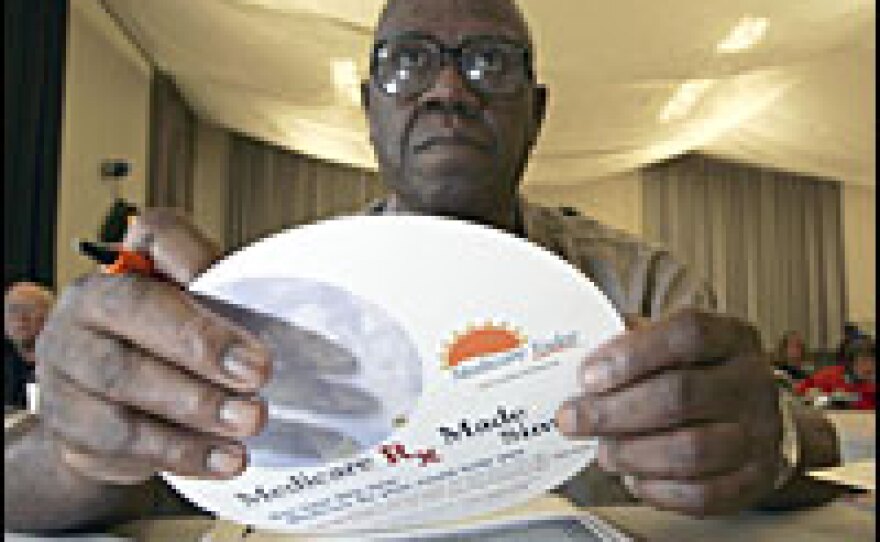President Bush's FY2007 budget would not only cut funding for a broad array of health programs, it could also fundamentally change the way the Medicare program for the elderly and disabled is funded.
Funding for so-called "discretionary" health programs would be largely frozen -- as for the $28 billion National Institutes of Health -- or reduced. The Centers for Disease Control and Prevention, for example, would see a $367 million reduction, to $5.8 billion; funding for the Health Resources and Services Administration would drop $252 million, to $6.3 billion.
Continuing a theme from last year, the budget proposes to terminate several smaller health programs, including one that helps fund training for primary care doctors and other health professionals, and the Health Community Access Program that links community health centers and public hospitals.
On the "entitlement" funding front, the budget proposes an additional $12 billion over five years in spending reductions for the Medicaid health program for the poor, whose funding is shared between the federal government and the states. Most of those reductions would come through cracking down on some state financing techniques that federal officials say allow states to pay less then they should.
But the biggest changes would come to the $350 billion Medicare program. The budget proposes $35.9 billion in spending reductions over the next five years, largely by reducing payments to hospitals, nursing homes, and some other health care providers.
A potentially far-reaching shift would in effect cap the amount of federal tax revenue that flows to Medicare. Currently the program is funded from three separate sources -- payroll taxes, beneficiary premiums, and general tax revenues. If the latter were to grow beyond 45 percent of total Medicare spending, under the proposal, Congress would either have to act to limit spending to that amount, or an across-the-board reduction of 0.1 percent would be applied to all Medicare spending.
Copyright 2023 NPR. To see more, visit https://www.npr.org. 9(MDM3NjYwMjA5MDE1MjA1MzQ1NDk1N2ZmZQ004))


